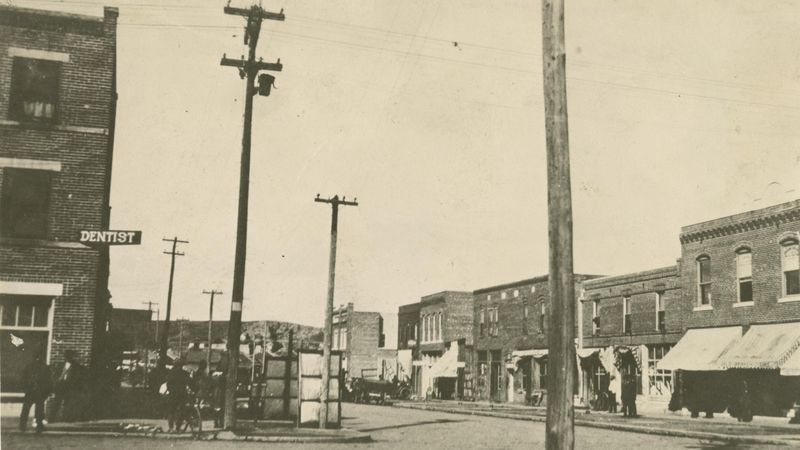On occasion of the centennial of the 1921 Tulsa Race Massacre that destroyed the center of African American wealth and proliferation, we have collected resources to study and teach the historical events and their tremendous repercussion within US culture and race relations.
The Tulsa Race Massacre Centennial Commission, tasked with the coordinating the commemoroation of the 1921 events is a great entry point to familarize yourself with the discourses around the massacre itself, Greenwood, as the place where it happened, and the continued debates about whose history is being communicated.
Databases and Archives
National Museum of African American History and Culture (NMAAHC)
- The NMAAHC has compiled its resources relating to the massacre in Greenwood in their "Tulsa Objects in the NMAAHC Collection"
- Try search filters such as "Tulsa Race Massacre," "Tulsa," or "Greenwood"
African American Newspapers (Series 1 & 2)
- Research contemporary news coverage of the 1920s related to the events in Tulsa through the African American Newspapers database which was licensed by the FID AAC
- Learn more about the database here
Oklahoma State University
- Browse the digitized materials of "Tulsa Race Massacre of 1921" - Collection
Smithsonian Institution
- The Smithsonian Institution presents in its collection cluster "Tulsa 100" different facets of their collections to engage with the Tulsa Race Massacre from different perspectives.
- The episode "Confronting the Past" of the Smithsonian's podacst Sidedoor provides an overall understanding of the events and their devastating impact.
Library of Congress
- Find search strategies and selected articles on the topic: https://guides.loc.gov/chronicling-america-tulsa-race-riots/introduction
Teaching the Tulsa Race Massacre
#TulsaSyllabus
- #TulsaSyllabus is source curated by Dr. Alicia Odewale (University of Tulsa) and Dr. Karla Slocum (University of North Carolina Chapel Hill) that offers reading lists and syllabi about different aspects of the Tulsa Greenwood District.
Tulsa Historical Society and Museum
- The THSM has curated a great online exhibit "The Attack on Greenwood" that offers engaging materials.
- The society has made available many audio recordings of interviews with survivors and contemporaries of the Tulsa Race Massacre.
- Find legal documents of course cases and reports of the Red Cross that document immediate reactions to the massacre.
Oklahoma Historical Society
- The Oklahoma Historical Society provides the offical report "Tulsa Race Riot" (2001) by the Oklahoma Commission to Study the Tulsa race Riot of 1921
- Find a historical overview of the events, their socio-political contexts, their immediate aftermath, and their long-term effects: https://www.okhistory.org/learn/trm
Tulsa and Greenwood in Literature, Art, and Culture
The Greenwood Art Project commissioned several artists to install public artworks arouond Tulsa on occasion of the Centennial. (Find a report on the project's opening on Artnet.)
Works of the artist Crystal Z. Campbell that reflect on the Tulsa Race Massacre.
Fire in Beulah (2001), a novel by Rilla Askew
Dreamland Burning (2017), a novel by Jennifer Latham
"The Case for Reparations" (2017), a story by Ta-Nehisi Coates
"The Massacre of Black Wallstreet" (2019), a webcomic by Natalie Chang
"Watchmen" (2019), TV-series by Alan Moore and Dave Gibbons
Currently in the News
"A Century after the Race Massacre, Tulsa Confronts Its Bloody Past" (NPR), May 24, 2021
"American Terror" (Smithsonian Magazine), April 2021
"The Tulsa Race Massacre at 100: An Imperative fpr International Accountability and Justice" (Stanford Law School), February 11, 2021
"Coffins Unearthed as the Search for Victims of the Tulsa Race Massacre Continues" (National Geographic), October 26, 2020
"Many Tulsa Massacres: How the Myth of a Liberal North Erases a Long History of White Violence" (National Museum of American History), August 25, 2020
"The 1921 Tulsa Race Massacre and the Financial Fallout" (Harvard Gazette), June 18, 2020




